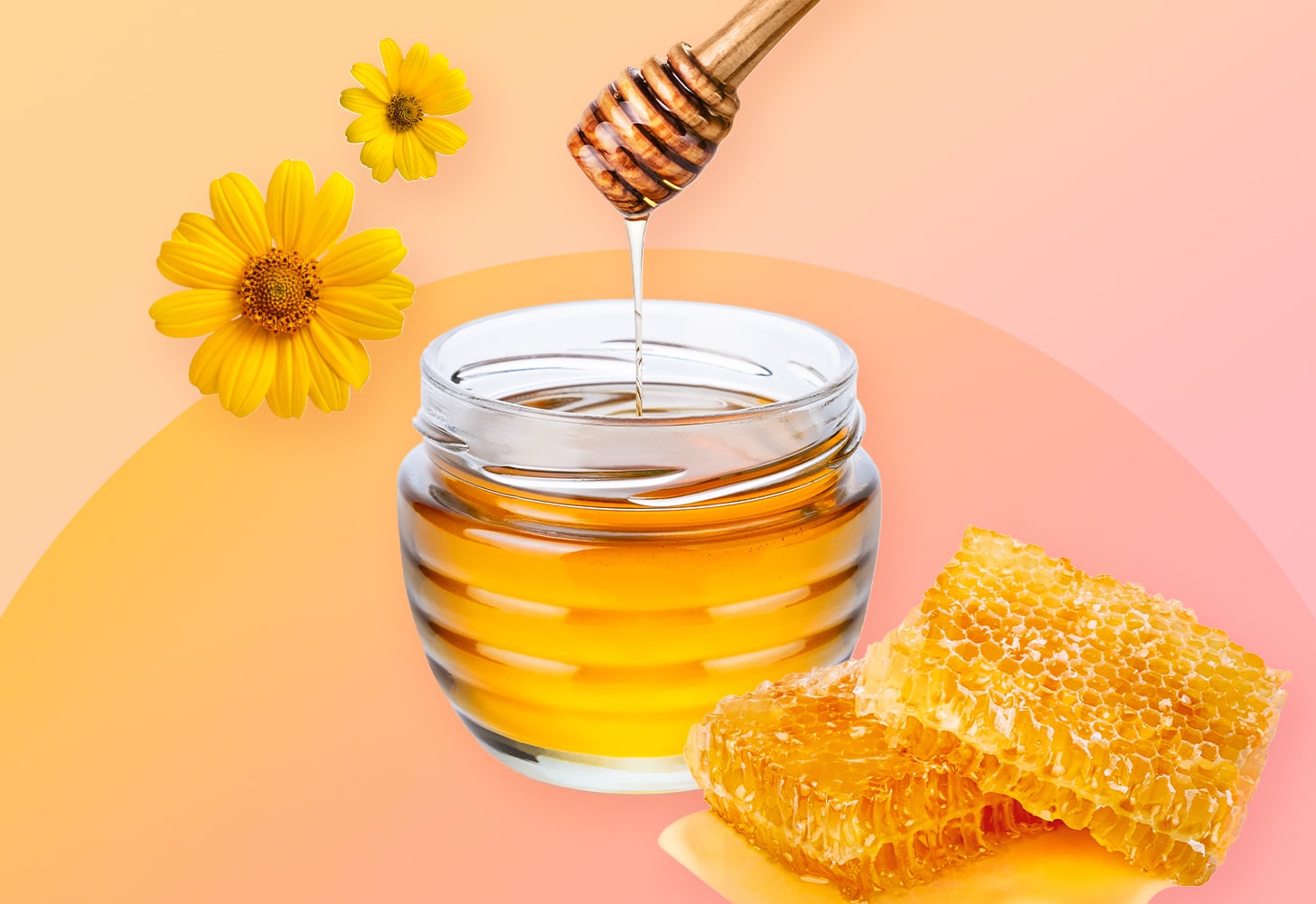Why Can't Babies Eat Honey? Infant Botulism, Explained
Why Can't Babies Eat Honey?

When my daughter Wynnie started eating solids, her doctor gave me a list of foods to avoid. At the time, I was surprised to see honey was on the list. The sweet treat is so often promoted as a health food — and to be sure, honey has many wonderful health benefits — that I didn't expect to learn that it can actually be dangerous for children under 1 year old.
"Honey can contain spores of a bacteria known as clostridium botulinum," says Lauren Torrisi-Gorra, MS, RD, a Sarah Wragge Wellness coach and registered dietitian nutritionist. "These spores can cause a rare condition known as infant botulism in children under 12 months, whose digestive and immune systems are still developing."
Infant botulism is dangerous and requires medical treatment. "Symptoms include constipation, difficulty feeding, weak cries, and diminished facial expressions," says Torrisi-Gorra. "If you think your child may be experiencing these symptoms, it's important to contact your doctor."
The best bet is to avoid giving kids under age 1 honey, even in baked goods, she says. The good news is that once a child is over age 1, they've likely got enough environmental exposure to the bacteria that they're no longer at such high risk of getting sick from honey.
Even so, Torrisi-Gorra notes that the Centres For Disease Control and Prevention still recommends limiting all added sugars like honey (and artificial sweeteners) until your child is over age 2, not because of infant botulism but because of good health. "Look out for added sugars hidden in common foods like graham crackers, pasta sauces, and granola bars," she says.
So what are your options for adding a touch of sweetness to your child's food during the period between when they start solids and their second birthday? The go-tos I suggest to my clients are no-sugar-added applesauce, sulfur-free prunes, or dates. Not only do these provide sweetness without added sugars, they offer fibre and minerals, too.
Once kids are safely able to consume honey, mānuka honey is one type I recommend. Mainly produced in New Zealand, this floral honey is full of antioxidants. It is also antimicrobial and has been studied for its ability to calm coughs and soothe digestive discomfort.
When you're at the store, look for Unique Mānuka Factor-graded honey, which is the strictest grading system of mānuka honey. The higher the UMF number, the more methylglyoxal or antibacterial properties the honey contains. Grades 10+ and higher have the most benefits.
But despite the antibacterial antioxidant benefits, it's important to remember that honey still contains sugar. "One tablespoon of honey contains 17.3 grams of sugar, which is almost 70 percent of the American Academy of Pediatrics's daily sugar limit of 25 grams of sugar per day," Torrisi-Gorra points out. That's not to say there's no place for a little sweetness in a child's diet — you just want to make sure you're keeping both safety and nutritional recommendations in mind.






